Use these nine handy tips to improve the performance and longevity of your dishwasher.
Dishwashers that improve performance
Modern dishwashers are a real time-saver, but they don’t always perform as expected. Most of us have had the disappointing experience of turning on the dishwasher to find a stain on a cup or food residue on a plate. However, there are some simple steps you can take to get your dishwasher running at peak performance. Regular maintenance on newer dishwashers will ensure years of faithful use. The cleaning performance of older models can also be significantly improved if common problems are checked and corrected.
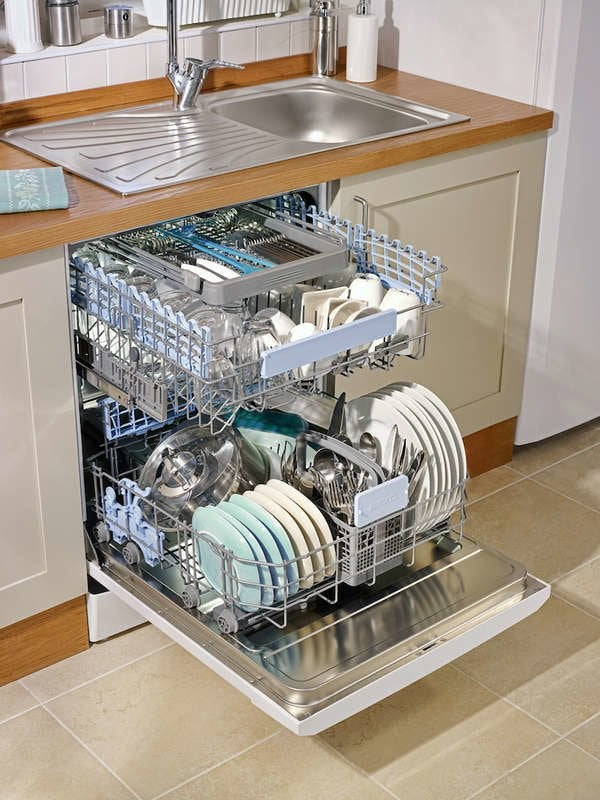
Dumping dirt.
If too much food residue enters the system, the dishwasher’s cleaning ability will be reduced. Of course, scrape off any food left on the dishes before putting them in the dishwasher. However, there is no need to pre-wash dishes.

Hot, hot, hot!

Use the hottest water possible in the dishwasher. Use a meat or candy thermometer to check the temperature of the hot water coming from the kitchen faucet. If necessary, adjust the setting on the water heater. Putting hot water in the kitchen sink before starting the dishwasher will also ensure that there is hot water in the dishwasher.
Tend to have hard water.
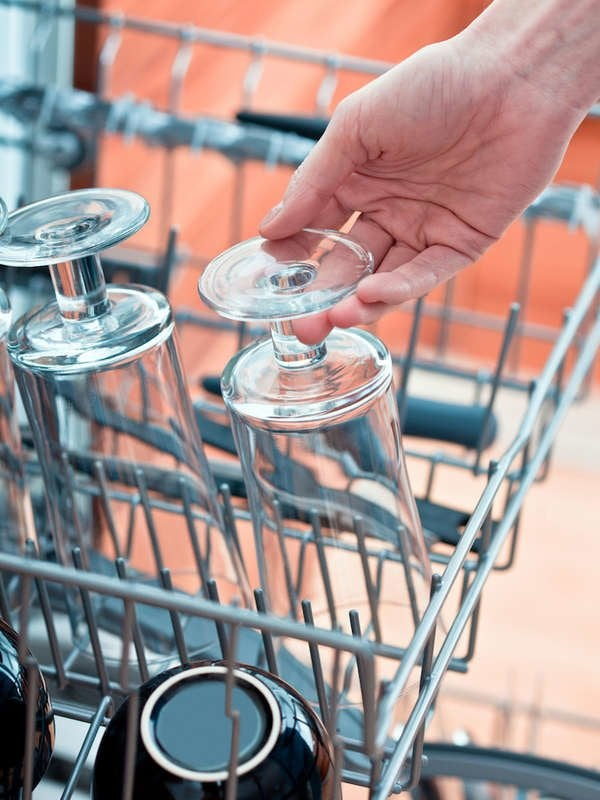
Hard water can leave terrible stains on cups and plates. If your dishes are stained, use an inexpensive hard water test kit from a home improvement store to find out if the water is hard. If it turns out to be hard, install a water softener to prevent dirt and mineral buildup.
Balance the load.
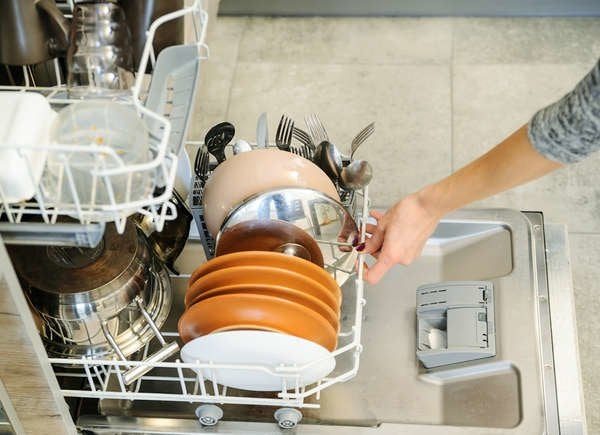
Carefully follow the manufacturer’s recommendations for loading the dishwasher. If the dishwasher is overcrowded or overloaded, the spray arms may become clogged, preventing water from reaching all surfaces.
Soap lather.
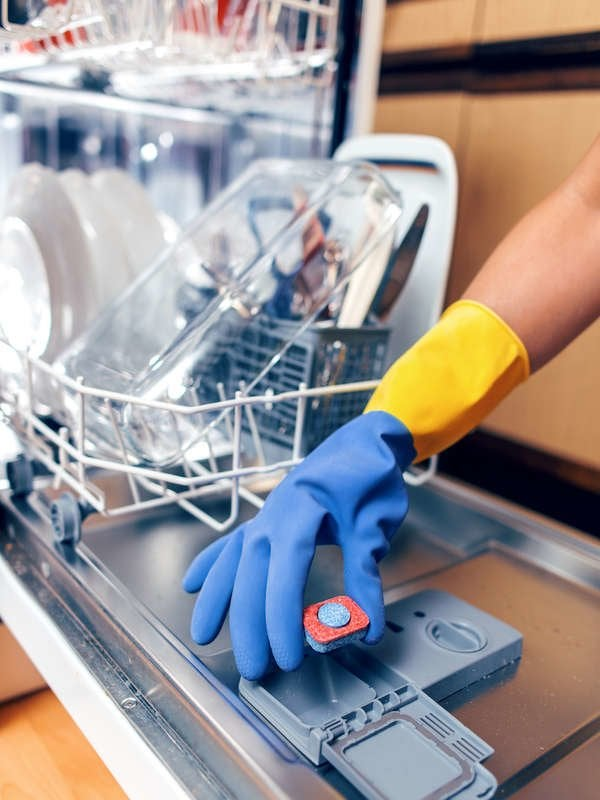
For the cleanest possible clean, use a high-quality dishwashing detergent and rinse agent. Always pour detergent into the dishwasher’s built-in measuring cup and use the correct amount. Do not use hand dishwashing detergent in the dishwasher.
Pay attention to cycle selection.
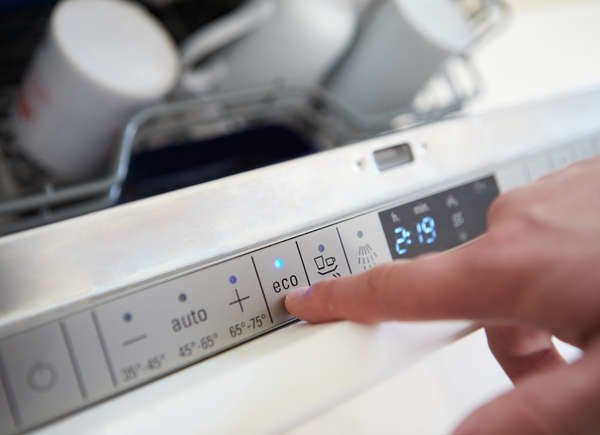
Check the operating instructions and always select the correct cycle for the dishes to be washed. Most dishwashers have a regular cycle for regular washing, a heavy cycle for deep cleaning and pots and pans, and a light cycle for porcelain and delicate items.
Cleaning the dishwasher

Dishwashers should be cleaned occasionally to remove adhering food debris, residual detergent and mineral buildup in the internal mechanism. To clean, use 2 cups of white vinegar instead of detergent and run through the dishwasher on the normal cycle. In addition, wipe the interior walls and racks with a vinegar and baking soda solution and rinse well after all surfaces have been wiped down.
Check for clogs.
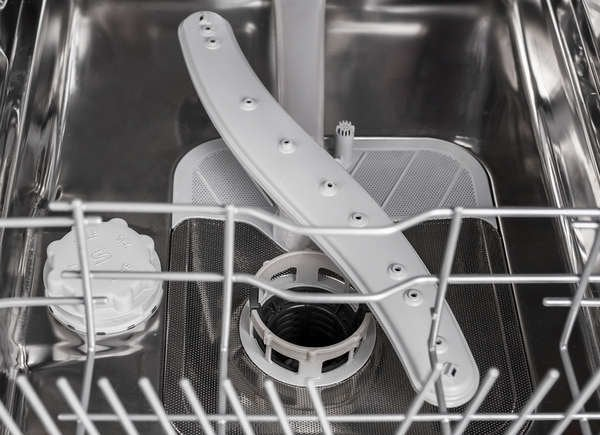
Spray arms and drain tubes may be clogged. Check the holes in the spray arms frequently to make sure they are not clogged with food debris or hard water minerals. Use a toothpick or needle to remove particles. Also check traps and drains to make sure they are not clogged with food debris.
Maintain flexibility.
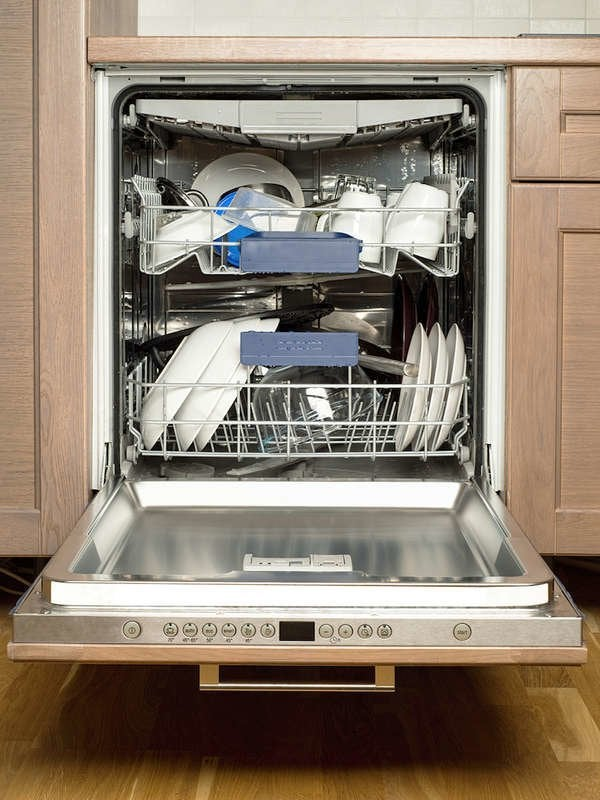
Gaskets and seals can dry out and break over time, eventually causing dishwasher leaks. All gaskets and seals, especially the main door gasket, should be checked periodically to ensure that the rubber is still flexible and replaced if necessary.









